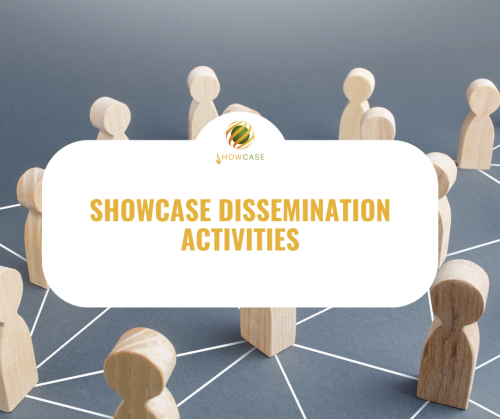SHOWCASE researcher Gyula Szabo from the Centre for Ecological Research (HUN-REN), presented research results from the Hungarian EBA in various conferences and events, such as the Congress of Hungarian Ecologists, the 9th Student Conference on Conservation Science and “Kert a köbön”. In his sessions, he showcased project results from the EBAs, aiming to provide insight into the collaboration between farmers, researchers, NGOs and citizens to develop and evaluate biodiversity innovations, enhancing sustainability and resilience in agriculture.
At the Congress of Hungarian Ecologists organised by the Hungarian Ecological Society, which took place in Szeged, Hungary on 21-23 August, 2024, Gyula presented a poster on SHOWCASE results from an EBA located in Central Hungary, in the Kiskunság area with the aim to improve the soil after overseeding treatment, as well as grassland functions. One of the main conclusions he highlighted was that in the third year after the overseeding with local wildflower seeds, 3 pollinator groups had higher abundance (wild bees, hoverflies and butterflies).
Gyula also participated in the 9th Student Conference on Conservation Science (SCCS) in Balatonvilágos, Hungary on 10-14 September, 2024 where he delivered a presentation on the impact of pollinators in promoting wildflower strips and fields and their subsequent effects on farmland birds within agricultural landscapes. This topic is highly relevant to the SHOWCASE project's focus on ecological functioning and enhancing biodiversity in agricultural environments, particularly in Central Hungary's Kiskunság region, which is another EBA. This specific EBA aims to demonstrate how strategically planted wildflower parcels can significantly improve both pollination and biological pest control services. These ecosystem services not only support the health of adjacent crops but also contribute to the overall ecological integrity of the landscape. By highlighting the interconnections between pollinators, wildflowers and farmland birds, Gyula's presentation contributed to a broader discourse on the benefits of biodiversity-friendly practices for enhancing agricultural productivity and ecological resilience.
In addition to his participation in the SCCS, Gyula Szabo also took part in the "Kert a köbön" (roughly translated to "garden cubed") initiative, on 7 September, organised by the National Botanical Garden in Hungary. This program is designed to engage the public with scientific research and raise awareness about crucial environmental topics. During this event, Gyula and his colleagues from HUN-REN engaged visitors of the National Botanical Garden in discussions about the vital role of pollinators as providers of ecosystem services and their critical position within the food chain. By showcasing the collected wild bees and hoverflies from their research, they helped to illustrate the diversity and importance of these species in maintaining healthy ecosystems. To make the learning experience interactive and fun, Gyula and his team created a maze for children, simulating the journey of a bee as it searches for appropriate flowers and fruit trees to pollinate. This hands-on activity not only educated young participants about the pollination process but also fostered a sense of connection to nature and the challenges faced by pollinators in agricultural landscapes.
Overall, Gyula's contributions at these various events and conferences aimed to showcase the results from the initiative to bridge scientific research, community engagement and practical conservation efforts, thereby inspiring a greater appreciation for biodiversity and its crucial role in ecosystems.
